In January 2023 I was interviewed by Sandie Sedgbeer on her ‘No BS Spiritual Bookclub’ where each participant is asked to provide their Top 10 “spiritual” books and to discuss their meaning and relation. Also, for the website, each person is asked to write a short description of each book. I have decided to reproduce those books and descriptions here below, for sharing with the readers of this substack, in the hope that some readers may find resonance and benefit with these books. The video will be shared separately on my Substack page. Thanks for reading!
Reading books and texts is itself an art and methodology. It helps to focus the concentration, sharpen the mind, and polish the thinking processes. It is both a discipline and a pleasure. Books also act as markers in one’s life; they are like diary entries that record where we were at during different parts of our lives. In this, they accompany a person through the life journey; and often become a participant in life’s experiences, epiphanies, and revelations. They are also great tangible objects to hold onto—which is why I’ll never be a fan of e-books.
I didn’t come to appreciate books until my teens. I started slowly; then consumed rapidly. I’ve come to regard books as portals —gateways—into other realms. If you treat them well, they will find ways to reward you in return. Certain books, read at certain times, and in a particular order, can serve to attune the mind to new frequencies of perception. So don’t bend the pages back or run coloured highlights through them (the books just plain don’t like it!). Books can be your teacher, your child, your friend—or a complete anomaly.
Like dreams, some books stand out more than others. They bring a different texture, resonance, to the life experience. It is some of these ‘resonant books’ that I have chosen for my list of ten books. They are placed in a chronological order of time’s journey, but not in order of importance.
In Search of the Miraculous: Fragments of an Unknown Teaching by P.D. Ouspensky
This is the classic book within the oeuvre of the Gurdjieff Fourth Way Work. Many people came to the Gurdjieff Work through this book, myself included. Ouspensky gave instructions for this book not to be published within his own lifetime. Its original title given by Ouspensky was Fragments of an Unknown Teaching, as this is what Ouspensky felt he was representing. For anyone wishing to familiarize themselves with the Gurdjieff Work, this book is indispensable. It also contains a lot of important information/knowledge in the conversations and encounters that Ouspensky recorded in the book; his personal meetings and remembrances with Gurdjieff; and much more. A dense yet rewarding book that will provide much to any researcher on human development.
The People of the Secret
by Ernest Scott
Another significant book for the researcher on human development and seeker of the ‘bigger picture.’ It is now well recognized that the author—Ernest Scott—is a pseudonym for … well, for some other person as yet unknown. Yet the contents, style, and depth of the book reveals that it was written by someone who clearly had knowledge and insight into these affairs. It is a book that covers a far-ranging historical perspective that discusses the hypothesis that a ‘Secret Directorate’ is responsible for seeding ideas into certain Earth cultures to prepare humanity ahead of time for major stages in its evolutionary development. As Colin Wilson writes in the introduction: “If its author had been born a few centuries ago, he would have been burnt for heresy.” This is a book that seeds many ideas that only reveal themselves to the attentive reader upon repeated readings. I have returned again and again to this book over the years.
The Masters of Wisdom
by J.G. Bennett
As the subtitle says, it is An Esoteric History of the Spiritual Unfolding of Life on This Planet. This book makes for a good companion reader to the aforementioned book by Ernest Scott. That is, it is a ‘big picture’ overview that will assist the keen researcher on human development to grasp a broader vista of the unfoldment of events across cultures and time. The time scale is over thousands of years (beginning with the Demiurge and the early directed evolution of life upon the planet). Principally, it follows how the creative love principle was historically passed down from those associated with the Christ impulse and how this was developed through the rise of the Khwajagan – the ‘Masters of Wisdom’ of Central Asia. Again, this book develops the idea that a high order of intelligence and wisdom is operating throughout human history and culture through certain conscious forces. An important book for the serious student of such matters, and one which I have returned to over the decades.
The Teachers of Gurdjieff
by Rafael LeFort
This intriguing book follows the travels of a westerner into the hinterlands of Asia in search of the source of knowledge that provided the ‘fragments of an unknown teaching’ of Gurdjieff/Ouspensky. First published in the 1960s, at the height of the western ‘hippy trail’ zeitgeist, this book likewise serves to dispel some of the stereotyped thinking from an occidental mindset. In that respect, it also operates as a ‘workbook’ for those predisposed to learning the path of inner development. Using the motif of encounters with unusual communities, groups, and certain individuals, a stream of knowledge is revealed that goes against much of our conditioned expectations. As the writer LeFort is advised: “Love the pitcher less and the water more.” This is a book that can assist to decondition the western mindset and prepare the way for higher knowledge to be received. Again, there is more here for the attentive reader, and is revealed through repeated readings as each reading works to shift the mind a little more each time.
Among the Dervishes
by O.M. Burke
This book could be said to be a good complement and companion to the previous book from Rafael LeFort. The book claims to be a first-hand account of a Westerner traveling through the ‘land of the Sufis.’ It also serves, like the previous book, to rewire the western mind into receiving knowledge in ways that the intrepid ‘seeker of truth’ may not initially suspect. Also, like the previous books on this list, there is more here than first meets the eye. This book also seeds the idea that certain communities and groups have been tasked with preserving and disseminating particular streams of wisdom according to the correct alignment of time, place, and people. What begins as somewhat stereotyped ideas—the occidental view of the orient—soon begins to unravel as the writer encounters unique communities and people from Istanbul, Basra, Bombay, Damascus, and more. In one episode, Burke is presented to a group of followers of Jesus who live in the western parts of Afghanistan and who perform a multi-circled dancing ritual that they say was passed down from Jesus himself. A lot more is revealed to the attentive reader and student of the inner life. This book also serves as a way to confront and dismiss certain western conditioned belief sets and to provide a bridge to receiving knowledge from outside of one’s normal ken. Again, a book that reveals itself to repeated readings.
The Commanding Self
by Idries Shah
For me, this was an important book in the psychological understanding of concepts for developed perception and higher understanding. I also chose this book as representing the full oeuvre of Idries Shah’s work (which is extensive). All of Shah’s books, taken together, form an integrated whole which comprises a body of teaching for the western seeker. The concept of the ‘commanding self’ is ‘that mixture of primitive and conditioned responses, common to everyone, which inhibits and distorts human progress and understanding.’
Idries Shah’s extensive body of work presents the Sufi Way within a modern context, suitable for a western mindset and frame of reference. Like all of Shah’s other works, this book helps to decondition and dismantle certain cultural blockages that are most prevalent within contemporary life. In this, the path of ‘spiritual development’ is reframed as a psychological path where deep reflection is first necessary before any further progress can be attained. This book contains a wealth of information, knowledge, and deconditioning material that can aid the attentive reader. Like all of Shah’s works, the reader is also expected to do some of the work. A book that has been constantly on my reading shelf.
The Walled Garden of Truth
by Hakim Sanai
The figure of Hakim Sanai, a Persian poet who lived in the 11th and 12th centuries, is not nowadays well read in the West. Yet upon discovering this book, it was a revelation for me as it was not only poetry but one of the most direct ‘inner beatings’ that I had come across at the time. Both beautiful and yet direct, the poet Sanai holds back no punches. Sanai could be speaking about today when he wrote ‘If you yourself are upside down in reality/then your wisdom and faith are bound to be topsy-turvy.’ Similarly, he warns the egoistic seeker: ‘Stop bragging in the presence of men of the path: better consume yourself like burning chaff.’ Sanai, in no uncertain terms, warns us that ‘All mankind is asleep, living in a desolate world.’ This small yet highly dense book is like a breath of fresh air to all the woolly, fluffy, so-called ‘spiritual’ poetry that adorns so many pretentious bookshelves. Hence, highly recommended for any serious student of the Path.
The Mind Field
by Robert Ornstein
I chose this particular book by Robert Ornstein as it was one of the first that I had read from him; yet by choosing this book it also represents his comprehensive body of work. Ornstein, a psychologist and teaching professor, based his career on reconciling the scientific understanding of the human brain with the larger, and growing, field of consciousness research. It was through his books that I came to understand more about the left-right brain hemispheric working (long before the work of psychiatrist Iain McGilchrist). Also, Ornstein was keen on exploring how brain functioning relates to certain developmental paths of awareness and heightened consciousness as related to known wisdom traditions. In the late 60s, Ornstein founded the ‘Institute for the Study of Human Knowledge’ to further disseminate his research. For me, Ornstein was one of the first credible scientific researchers to verify the psychological dimensions of inner development. As such, his work stands well alongside the corpus of Idries Shah.
Sri Aurobindo, or The Adventure of Consciousness by Satprem
This book by Satprem represents both the work of philosopher Satprem as well as the yogic path of Sri Aurobindo and the Mother. For me, this book was the introduction to the life and work of Sri Aurobindo and is one of the clearest extrapolations to his philosophy and path of Integral Yoga outside of Aurobindo’s own writings. I feel that anyone wishing to approach the work of Sri Aurobindo would do well to acquaint themselves first with this book. Aurobindo’s philosophy has come in and out of western favour, and still fluctuates. His intellectual approach makes it amenable to a western reader, although his central concept of a supramental consciousness still remains unclear to many. Yet whilst many ‘eastern’ teachers were talking of an ascent of consciousness, Sri Aurobindo and the Mother were speaking about a descent of higher consciousness into the human vessel and then to be transmitted into the matter-physical realm. The later work of the Mother, after Sri Aurobindo’s passing, detailed the descent of consciousness into the cellular level to work upon preparing the human body-mind from inside outwards. Taken as a whole, the work of Sri Aurobindo, the Mother, and Satprem are important to grasp and, for me, bring an extra mode of comprehension into our current times—and Satprem’s book serves as a gateway into this Work.
Own Your Truth
by Kaleb Seth Perl
This final text is the most recent in terms of publication history. KSP, as the writer is often referred as, published six books within one year (2020-2021) and none since. This particular book is the final one and concludes the second trilogy. As a contemporary body of work, I have found little else to compare this with. These materials, I feel, were intentionally produced to coincide with the events of our current times. As KSP states: ‘Time to Break Out of the Perception Prison/Time to change the Game/Time for Hope/Time for a New Human Becoming.’ Like Hakim Sanai but in prose, this material is direct, and pulls no punches. It is psychologically based yet deeply grounded in the issues of our times regarding human programming and our conditioned belief sets. For me, these books appeared at a time that was ‘spot on’ and provided a perceptual lens in which to observe the human condition, our dire situation, as well as the hope for the future. Not to be classed as ‘easy reading,’ these series of books are also, I would say, geared towards the serious student of inner development, and certainly not for the commercial spiritual tourist. As with all the books in this list, more is revealed upon repeated readings.
Link to original website: https://www.sedgbeer.com/kingsley-l-dennis-10-best-spiritual-books-list/






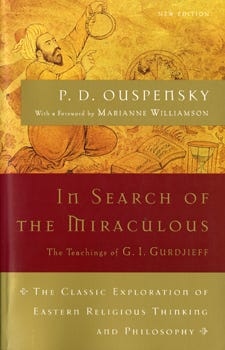

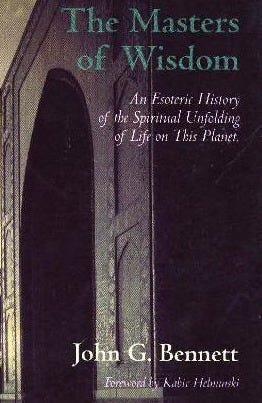
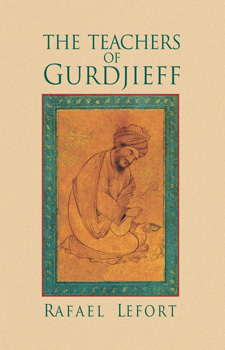

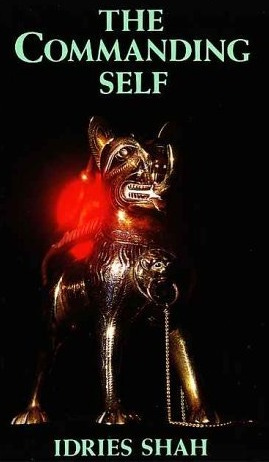



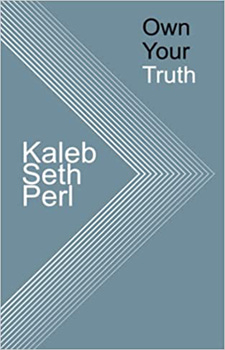
Some great words in those books. It must be the divine way of words to only seek out the seeker and not the huddled masses. How different a world would look and feel if everyone at least pondered the deeper meanings of this thing we call life.
Thanks for sharing have read a few of those books.
Sufi poets are something else...
Thanks for this reminder Kingsley…